#Slavery and Emancipation
Explore tagged Tumblr posts
Photo




Many of us are taught that slavery came to an end with the Emancipation Proclamation in 1863, but for enslaved people in Texas, freedom didn’t come until June 19, 1865.
Swipe to learn about the history of Juneteenth, and why it’s a celebration of freedom, culture, and progress.
#juneteenth#history#american history#black history#black culture#emancipation proclamation#13th amendment#slavery#galveston texas#texas#freedom#freedom day#emancipation#independence day#happy juneteenth
7K notes
·
View notes
Text

—Did you know that Juneteenth is also celebrated in a part of Mexico? Nacimiento Mexico was once home to thousands who escaped slavery in the US. As many as 10,000 slaves followed a clandestine Southern Underground Railroad to Mexico. —To date, many Black Mexicans from the Texas area retrace a portion of the same route their African American ancestors followed in 1850 when they escaped slavery. —Descendants of slaves who escaped across the southern border observe Texas’s emancipation holiday with their own unique traditions in the village of Nacimiento. —Slave hunters would patrol the southern border for escapees, led by the Texas Rangers but the Mexican army would be there waiting for them (the slave hunters) to turn them away.
x
#juneteenth#mexico#nacimiento mexico#black mexicans#african american ancestors#slavery escape route#southern underground railroad#texas#emancipation holiday#unique traditions#slave hunters#texas rangers#mexican army
11K notes
·
View notes
Text
Honoring Freedom: Juneteenth











On June 19, 1865, news of emancipation reached the last enslaved person in Galveston, Texas, more than two years after the Emancipation Proclamation. Today, Juneteenth is a celebration of freedom, resilience, and Black history and culture.
This Juneteenth, we're highlighting two powerful works by author, educator and activist Booker T. Washington (1856-1915): Up from Slavery and Working with the Hands. Both volumes were published in New York by Doubleday, Page & Company. Originally published in 1901, our copy of Up from Slavery was published in 1902. Our copy of Working with the Hands is a first edition from 1904 and is illustrated with photographs by Frances Benjamin Johnston (1864-1952), an American photographer and photojournalist.
Booker T. Washington’s landmark autobiography, Up from Slavery, chronicles his journey from slavery in Virginia to becoming one of the most influential Black leaders in the United States. The book details his early life, his education at Hampton Institute, and his founding of the Tuskegee Normal and Industrial Institute (now known as Tuskegee University) in Alabama. Washington advocates for self-reliance, industrial education, and racial uplift through dignity and hard work. This text was widely read and continues to be a foundational work in African American literature and history.
A lesser-known sequel to Up from Slavery, Working with the Hands serves as a practical and philosophical follow-up. In it, Washington elaborates on the day-to-day operations, goals, and educational philosophy of the Tuskegee Institute. The book emphasizes the dignity of manual labor and the importance of vocational training as a means of achieving Black economic empowerment in the post-Reconstruction South.
From emancipation to education, Washington’s life and legacy are deeply tied to the ongoing struggle for Black freedom and self-determination. His writings emphasize resilience, practical knowledge, and the power of building a future by hand and by heart.
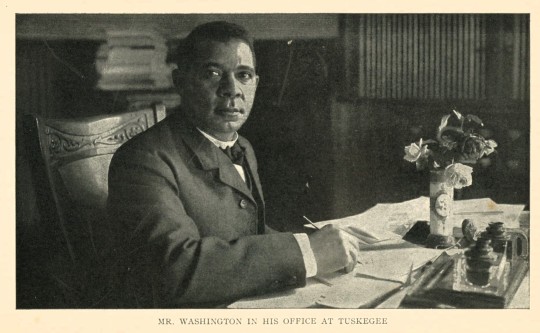
-View previous Juneteenth posts
--Melissa, Distinctive Collections Library Assistant
#juneteenth#june 19#holidays#African Americans#booker t washington#up from slavery#working with the hands#tuskegee institute#tuskegee university#frances benjamin johnston#doubleday#freedom#emancipation#emancipation proclamation#galveston#resilience#black history#black culture#educator#activist
709 notes
·
View notes
Text

Opal Lee walked from Fort Worth to Washington, D.C., to deliver 1.6 million signatures in support of making Juneteenth a national holiday when she was 89 years old.
She began her walk in September 2016, gathering pledges and signatures along the 1,360-mile route, and arrived in Washington in January 2017. Her Juneteenth walk sparked renewed interest in making the day a federal holiday.
On June 17, 2021, Lee was present at The White House when President Joe Biden signed the bill to make Juneteenth a federal holiday.
#opal lee#love#juneteenth#the end of slavery#black lives#washington dc#march#teacher#texas#emancipation
543 notes
·
View notes
Text

Juneteenth (19 June), or Emancipation Day, commemorates the day US troops arrived in Galveston, Texas, to announce the government had abolished slavery, more than two-and-a-half years after the Emancipation Proclamation went into effect on 1 January 1863.
The Emancipation Proclamation freed at least 3.5 million enslaved people in Confederate states (states supporting slavery) during the US Civil War (1861-65). Although Lincoln initially freed enslaved Africans so they could join the US military, the goalpost moved when he decided saving the Union (non-slaveholding states) meant abolishing slavery.
Many enslavers took refuge in Texas with their enslaved people, seeing it as a haven for slavery. As Union states gained the upper hand, many Black people gained freedom, but not those in Texas.
While local Juneteenth celebrations saw a resurgence in the late 20th century, US President Joe Biden made it a federal holiday in 2021.
Unfortunately, freedom did not come with reparations and equality. To this day, descendants of enslaved Africans suffer physical and mental ailments—such as high blood pressure and kidney disease, to name a few—are nine times poorer than their white counterparts, and Black men are four times more likely to be imprisoned than white men.
Could the payment of reparations for US slavery complete the memory of Juneteenth? Let us know in the comments.
#juneteenth#blacktumblr#black history#black liberation#african history#texas#slavery#emancipation day
279 notes
·
View notes
Text
Ten Little-Known Facts About Juneteenth: The Celebration We Should All Understand
Juneteenth is often celebrated with cookouts, parades, music, and joy—but for many Americans, it remains misunderstood or reduced to symbolic gestures. Though it marks a pivotal moment in the history of Black liberation in the United States, the layers of meaning behind Juneteenth stretch well beyond what is taught in school textbooks or captured in corporate statements. In this post, we explore…
#13th amendment#african american history#american holidays#Black History#black liberation#black resistance#civil rights#communication#community resilience#cultural celebration#cultural memory#emancipation#federal recognition#freedom day#general order no 3#great migration#hidden history#influencers#jim crow#jtwb768#juneteenth#politics#racial justice#reconstruction#red foods tradition#reparations#slavery abolition#texas history#truth in history
12 notes
·
View notes
Text

August 1st 1834 saw the abolition of slavery, an abhorrent thing, and something Scotland can't just wash its hands of.
Many of you will have walked through St Andrew's Square in Edinburgh, and some, myself included will have taken the obligatory pics, most of which will be dominated by a sort miniature Nelson's Column, but atop is the statue of Henry Dundas, 1st Viscount Melville, the 'Uncrowned King of Scotland'. You can just see him in the pic. Your eyes will fall also on several buildings that would have been homes or business premises of Scots who made their fortunes in the transatlantic slave trade. Many of the houses in the New Town were owned by people with investments in the slave trade.
Back to Mr Dundas, with his immense power he held at the end of the eighteenth century, he was able to use his influence to almost single handedly delay the abolition of slave trade a further 15 years to 1807 and the subsequent abolition of British slavery in 1834. He was impeached in 1806 (then acquitted) for the misappropriation of funds, and he never held office again. Who knows how much more suffering was inflicted on African people in the Middle Passage during those 15 years?
There has been much controversy recently about his statue. What words on his plaque would be appropriate to reflect this unsavoury side of his legacy and give necessary context to his role in Scottish society?
The magnificent Royal Bank of Scotland’s headquarters, Dundas House, was the original home of Lawrence Dundas, cousin to Henry Dundas. His brother George Heneage Lawrence Dundas owned plantations in Grenada and Dominica.
The 4th Earl of Hopetoun, the nephew of Henry Dundas’ second wife, and the vice governor of the bank, is immortalised in the bronze statue outside the bank. He was second in command to fellow Scot, Ralph Abercromby, commander-in-chief of the British forces in the West Indies. Together, the men helped to end the two year slave revolution led by French-African Julien Fedon in Grenada in 1795-6 in the fight against the French for islands in the West Indies. Fedon was a highly skilled strategist, and his men executed 40 British, including Scottish governor Ninian Home at his home in Paraclete.
After 15 months of fighting the rebels were captured and executed in the Market Square. Yet Fedon was never found. Legend says he escaped to a neighbouring island on a canoe, aided by either the Amerindians or ‘Black Caribs’ in St.Vincent.
The suppression of this revolution resulted in slavery continuing for almost another 40 years in Grenada.
And when the eventual abolition came it was Dundas and his cronies who profited further with compensation deals running into what today would be billions of pounds.
I'm turning of commenting on this as it can attract some comments that I would end up having to delete, you can vent your opinions through emoticons
Read more on this despicable man and the trade helped lengthen here. https://historycompany.co.uk/.../henry-dundas-lofty-hero.../
42 notes
·
View notes
Text

Happy Juneteenth day to all. 🖤❤️💛💚🇺🇸
#Texas#galveston#freedom day#jubilee#black history#emancipation#emancipation day#june 2025#juneteenth#happy Juneteenth#Juneteenth day#juneteenth 2025#civil war#civil rights#abraham lincoln#slavery#jean michel basquiat#basquiat#poster art#poster design#liberation#liberation day#keith haring#andy warhol#cy twombly#pop art#abstract expressionism#us history#june 19#contemporary art
6 notes
·
View notes
Text
In the summer of 1791, Robert Carter III filed his Deed of Gift, a legal document which would emancipate all 500 of his slaves. He was one of the only Founding Fathers to free his slaves in his lifetime, unlike his contemporaries Jefferson and Washington, and it was (one of?) the largest emancipations until the Civil War. His Deed made sure that the freed people had education, land, and an airtight legal defense for their freedom, despite his heirs fighting it in court for decades after his death.
In the summer of 1791, Alexander Hamilton had an affair with a married woman while his wife and children were away. This affair would eventually balloon into a scandal involving blackmail and accusations of speculation. Hamilton wrote a 95 page tell-all pamphlet exposing his own infidelity, which cleared his name, but the scandal damaged his career and his presidential candidacy prospects.
#alia talks#robert carter iii#alexander hamilton#amrev#history#I just find it buck wild that in the same summer one founding father was enacting the largest pre-civil war emancipation#(and putting paid to the argument that the founding fathers had their hands tied regarding slavery)#and another founding father was busy fucking up his life#parallels#hamilton#hamilton the musical#also carter was about 30 years older than hamilton but he took a firmer stance against slavery than hamilton ever did
9 notes
·
View notes
Text

Happy Juneteenth weekend!
4 notes
·
View notes
Text
“Yes, and this “other thing” is essentially the erasure of Being. Towards the end of the essay I talk about this. I have always felt a bit discomforted by the whole notion of emancipation celebrations or “markings.” While I think on the one hand that it is important to mark these events, on the other hand, when you deconstruct this type of activity and question what it is we are, in fact, commemorating you realize that it has more to do with Europeans finally understanding and accepting what we, African people, knew all along, that we are first and last Beings, and that we cannot be turned into things? Hence, we will run, we will fight, we will kill, we will even kill our children rather than agree to be non-Beings? So, in a way we have always been outside of that Law, in a philosophical sense. We are still outside of the law today (and yet trapped by it) in the way the law is used to police and confine black bodies in the new prison industrial complex.”
M. NourbeSe Philip
Patricia Saunders - Defending the Dead, Confronting the Archive: A Conversation with M. NourbeSe Philip (Small Axe 26, June 2008, p 63–79)
2 notes
·
View notes
Text
youtube
The Hidden Truth Behind The End Of Slavery - Thomas Sowell
Slavery was destroyed within the United States at staggering costs in blood and treasure, but the struggle was over within a few ghastly years of warfare. Nevertheless, the Civil War was the bloodiest war ever fought in the Western Hemisphere, and more Americans were killed in that war than in any other war in the country’s history. But this was a highly atypical—indeed, unique—way to end slavery. In most of the rest of the world, unremitting efforts to destroy the institution of slavery went on for more than a century, on a thousand shifting fronts, and in the face of determined and ingenious efforts to continue the trade in human beings.
Within the British Empire, the abolition of slavery was accompanied by the payment of compensation to slave owners for what was legally the confiscation of their property. This cost the British government £20 million—a huge sum in the nineteenth century, about 5 percent of the nation’s annual output.38 A similar plan to have the federal government of the United States buy up the slaves and then set them free was proposed in Congress, but was never implemented. The costs of emancipating the millions of slaves in the United States would have been more than half the annual national output—but still less than the economic costs of the Civil War,39 quite aside from the cost in blood and lives, and a legacy of lasting bitterness in the South, growing out of its defeat and the widespread destruction it suffered during that conflict.
While the British could simply abolish slavery in their Western Hemisphere colonies, they faced a more daunting and longer-lasting task of patrolling the Atlantic off the coast of Africa, in order to prevent slave ships of various nationalities from continuing to supply slaves illegally. Even during the Napoleonic wars, Britain continued to keep some of its warships on patrol off West Africa. Moreover, such patrols likewise tried to interdict the shipments of slaves from East Africa through the Indian Ocean, the Red Sea, and the Persian Gulf. Brazil capitulated to British demands that it end its slave trade, after being publicly humiliated by British warships that seized and destroyed slave ships within Brazil’s own waters. In 1873, two British cruisers appeared off the coast of Zanzibar and threatened to blockade the island unless the slave market there shut down. It was shut down.
It would be hard to think of any other crusade pursued so relentlessly for so long by any nation, at such mounting costs, without any economic or other tangible benefit to itself. These costs included bribes paid to Spain and Portugal to get their cooperation with the effort to stop the international slave trade and the costs of maintaining naval patrols and of resettling freed slaves, not to mention dangerous frictions with France and the United States, among other countries.40 Captains of British warships who detained vessels suspected of carrying slaves were legally liable if those vessels turned out to have no slaves on board. The human costs were also large.
[..]
None of this means that the horrors of the transatlantic slave trade should be ignored, downplayed, or excused. Nor have they been. A vast literature has detailed the vile conditions under which slaves from Africa lived—and died—during their voyages to the Western Hemisphere. But the much less publicized slave trade to the Islamic countries had even higher mortality rates en route, as well as involving larger numbers of people over the centuries, even though the Atlantic slave trade had higher peaks while it lasted. By a variety of accounts, most of the slaves who were marched across the Sahara toward the Mediterranean died on the way.53 While these were mostly women and girls, the males faced a special danger—castration to produce the eunuchs in demand as harem attendants in the Islamic world.
[..]
On the issue of slavery, it was essentially Western civilization against the world. At the time, Western civilization had the power to prevail against all other civilizations. That is how and why slavery was destroyed as an institution in almost the whole world. But it did not happen all at once or even within a few decades. When the British finally stamped out slavery in Tanganyika in 1922 it was more than half a century after the Emancipation Proclamation in the United States, and vestiges of slavery still survived in parts of Africa into the twenty-first century.
==
This video pairs visual elements with Sowell's audiobook reading of his own book, "Black Rednecks and White Liberals."
https://en.wikipedia.org/wiki/Blockade_of_Africa
The Blockade of Africa began in 1808 after the United Kingdom outlawed the Atlantic slave trade, making it illegal for British ships to transport slaves. The Royal Navy immediately established a presence off Africa to enforce the ban, called the West Africa Squadron. Although the ban initially applied only to British ships, Britain negotiated treaties with other countries to give the Royal Navy the right to intercept and search their ships for slaves.
https://en.wikipedia.org/wiki/West_Africa_Squadron
The West Africa Squadron, also known as the Preventative Squadron, was a squadron of the British Royal Navy whose goal was to suppress the Atlantic slave trade by patrolling the coast of West Africa. Formed in 1808 after the British Parliament passed the Slave Trade Act 1807 and based out of Portsmouth, England, it remained an independent command until 1856 and then again from 1866 to 1867.
#Thomas Sowell#slavery#history of slavery#western civilization#emancipation#emancipation proclamation#Blockade of Africa#West Africa Squadron#slave trade#Arab slave trade#islamic slavery#islamic slave trade#religion is a mental illness
10 notes
·
View notes
Text
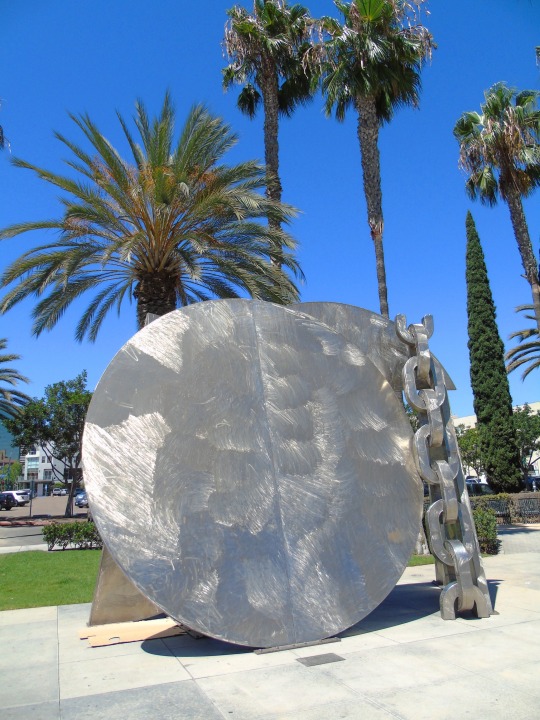

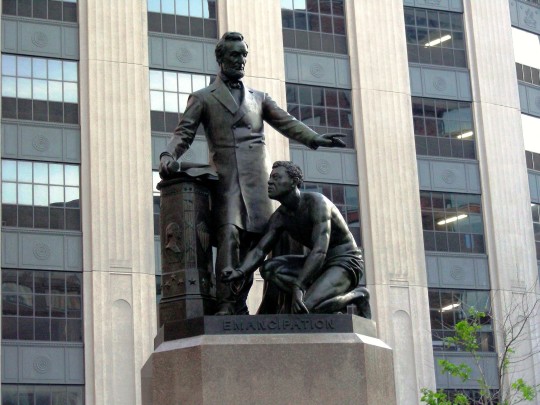

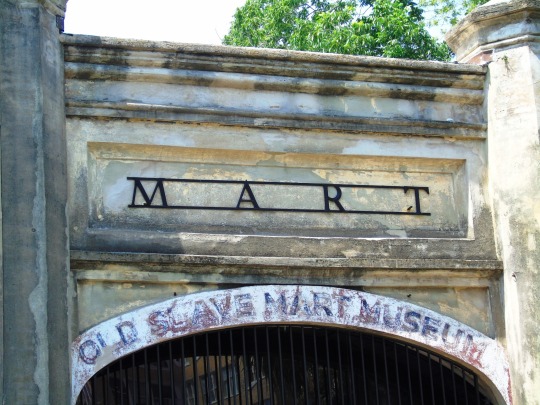
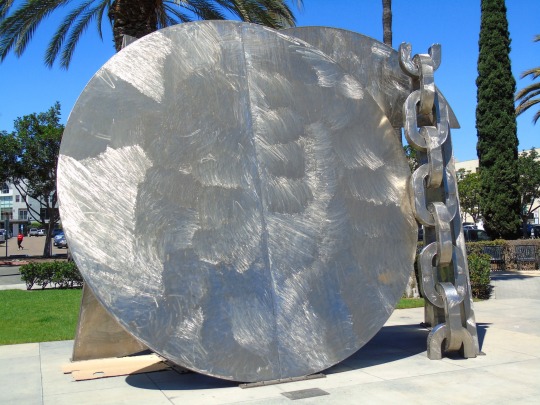
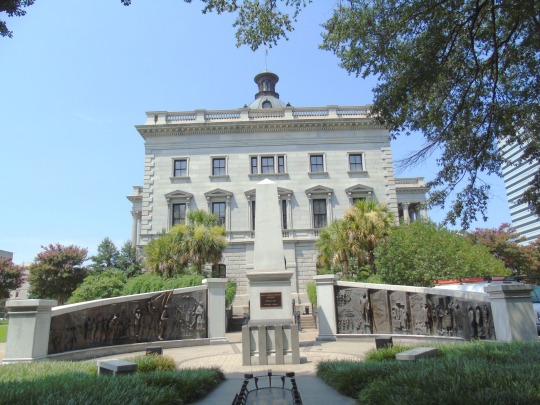


International Day for the Abolition Of Slavery
International Day for the Abolition of Slavery happens annually on December 2. On this day in 1949, the General Assembly of the United Nations adopted the Convention for the Suppression of the Traffic in Persons and the Exploitation of the Prostitution of Others. This day is dedicated to ending modern forms of slavery, such as sexual exploitation, human trafficking, the most heinous kinds of child labor, forced marriage, and the forced recruitment of children for use in armed conflict.
It is about raising awareness and reinforcing global efforts in combatting the scourge of modern slavery. Governments, organizations, and individuals are entreated to take this day specifically as an opportunity to denounce the atrocities of slavery in its modern form that still exist in the world. Fun fact: The aim of International Day for the Abolition of Slavery is different from that of International Day for the Remembrance of the Slave Trade and its Abolition, the latter of which is a day to reflect on the atrocities committed during the Transatlantic Slave Trade Era.
History of International Day for the Abolition of Slavery
The International Day for the Abolition of Slavery focuses on eradicating modern forms of slavery like trafficking, sexual exploitation, child labor, forced marriage, and forced recruitment of children into armed conflict. The Day is observed on December 2, which marks the same date that the U.N. Convention for the Suppression of the Traffic in Persons and the Exploitation of the Prostitution of Others was adopted by its member states on December 2, 1949, and it is expected to be observed by governments, organizations, and people all around the world as a day specifically set aside to rebuke all forms of modern-day slavery that still exist in the world today.
The International Labor Organization puts the number of victims of modern slavery at 40 million worldwide. And although modern slavery is not defined by any binding law, the word encompasses practices such as forced labor, debt bondage, forced marriage, human trafficking, and every other situation of exploitation under which a victim is trapped because of threats of violence, coercion, deception, or abuse of power.
From prehistoric times to the present, slavery has spanned various nations, civilizations, and religions. Similarly, victims of slavery hailed from a wide range of races and religious backgrounds. Enslaved people’s social, economic, and legal standing have varied greatly across times and places. Africans were kidnapped in the 17th and 18th centuries, sold into slavery in the American colonies, and exploited to work as slaves in the production of products such as tobacco and cotton. Though precise estimates are impossible to provide, some historians believe that 6 to 7 million enslaved individuals were carried to the New World during the 18th century alone, robbing Africa of some of its strongest and healthiest men and women.
Lincoln issued a preliminary emancipation proclamation on September 22, 1862, and on January 1, 1863, he made it official that slaves within any U.S. state, or designated part of a state shall be then and forever be free. The Emancipation Proclamation freed almost 3 million enslaved individuals in the rebel states, depriving the Confederacy of the majority of its labor forces and swaying foreign public opinion heavily in favor of the Union. Though the Emancipation Proclamation did not formally end slavery in America—that would come with the passage of the 13th Amendment after the Civil War ended in 1865—some 186,000 Black troops joined the Union Army, and approximately 38,000 died.
Even though slavery is no longer legal anywhere in the world, human trafficking is still nevertheless a global issue. As of 2013, approximately 25-40 million people were enslaved, with the majority of these people living in Asia. People were sold into slavery during Sudan’s Second Civil War, which lasted from 1983 to 2005. Evidence of child trafficking and slavery on cocoa plantations in West Africa appeared in the late 1990s.
Although, since 1995, the International Day for the Abolition of Slavery has shone the spotlight on atrocities of modern slavery and tried to inspire commitment to better humanity, December 2 wasn’t recognized as the International Day for the Abolition of Slavery until exactly a decade after a U.N. Working Group on Slavery submitted a report that tendered the date for consideration as the World Day for the Abolition of Slavery in 1985.
International Day for the Abolition of Slavery timeline
1619
Starting Point Of Slavery In America
A lot of people consider 1619 to be a starting point of slavery in America.
17th Century
Poor Europeans Were Replaced With African Slaves
In North America European settlers turns to African slaves instead of indentured servants who were often poor Europeans.
1770
Crispus Attucks is killed
An escaped slave man is one of the first people to be killed by British soldiers during the Boston Massacre.
1800
Slave Rebellion
Gabriel Prosser rebels against his masters in Richmond, Virginia, in the U.S.
1808
Congress Proscribes Slavery
Congress outlaws the importation of enslaved persons, although the push for this ban began earlier in the northern colonies, during the American Revolution.
1866
Last Dance in Cuba
The last known slave ship carries captives to Cuba in 1866.
1995
First Celebration
International Day for the Abolition of Slavery is first observed in 1995 following the report by a United Nations Working Group on slavery a decade earlier.
2016
U.N.’s Landmark Forced Labor Protocol
The International Labour Organization adopts a “new legally binding Protocol” meant to help in the global efforts to eliminate forced labor, which is implemented in November 2016.
International Day for the Abolition of Slavery FAQs
Which country first abolished slavery?
Britain abolished slavery throughout its empire in 1833; France and the U.S. followed in 1848 and 1865, respectively.
Who is responsible for the abolition of slavery?
William Wilberforce (1759–1833), a British politician and philanthropist, led the movement to abolish the slave trade.
Which was the last country to abolish slavery?
Although according to records, the last known slave ship carried captives to Cuba in 1866, Mauritania is known as the last country in the world to abolish slavery in 1981, nearly 120 years after Abraham Lincoln issued the Emancipation Proclamation in the United States.
How To Observe The International Day for the Abolition of Slavery
Become a conscious consumer: One way to observe the International Day for the Abolition of Slavery and to bring a meaningful change is to commit to only buying goods labeled as 'fair trade,' indicating that those goods are produced ethically. Check the companies you purchase from and their supply chains to ensure there was no slave labor used in producing the goods. You can also call on businesses to end forced labor and slavery in their supply chains.
Commit to ethical labor sourcing: There’s no better way to support the day for people who own businesses than to commit to producing your goods and delivering your services ethically. You may also persuade fellow entrepreneurs and even mark your goods as being produced through ethical labor to get even more patronage.
Stop oppressing others: Look inward, you may be oppressing someone or some people in a way. If you find that you are guilty of this then it is not too late to change your ways. After reading about the history of slaves you must understand how those being oppressed feel and you would not want to be the oppressor.
5 Things You Should Know About Slave Trade And The Abolition Of Slavery
40 million people face modern-day slavery: According to the International Labour Organisation, more than 40 million people worldwide are victims of modern slavery, such as forced labor, debt bondage, forced marriage, and human trafficking.
Forced labor victims create a $150 billion profit: The International Labour Organization estimates that there are currently 21 million forced labor victims worldwide creating a total of $150 billion in illegal profits in the private economy each year.
One in four of the enslaved are children: An estimated one in four people witnessing forms of modern slavery are children.
12 million enslaved Africans transportedAccording to records, the Transatlantic Slave Trade saw an estimated 12 million enslaved Africans transported across the Atlantic Ocean to the Americas from the 16th to the 19th century.
Many were shipped to South America: The majority of enslaved Africans during the Transatlantic Slave Trade were transported to the Caribbean or Brazil.
Why International Day for the Abolition of Slavery Is Important
It’s an opportunity to make a change: The goal of the International Day for the Abolition of Slavery is to get enough people to be aware of the scourge of modern slavery and commit to ending it. The day provides an opportunity to make a change. By talking about it to people and persuading them to commit to ending it, the day serves as an avenue to make a lasting impact in our world.
It highlights humanity’s shortcomings: There’s no better motivation to collectively work towards a better and just future than having a look at the thing we are currently bad at. Because International Day for the Abolition of Slavery highlights our errors in the area of slavery and the traditional beliefs and institutions that have actively supported it, it serves as a motivation for us to demand something better. The slave trade era was not fun, people suffered a lot and were treated as less than humans while working for their masters. As we celebrate International Day for the Abolition of Slavery, we are celebrating the fact that slavery has been put to an end.
It helps recommit us to humanity’s service: Yes — International Day for the Abolition of Slavery helps to recommit us to the service of those who have been forced into some kind of modern slavery. It serves as a day to further connect with our humanity. When we remember that Abolition Day celebrates the end of slavery, we would be grateful that we were not born in the slave trade era. Knowing the struggles that slaves went through in that era would make us appreciate our freedom more.
Source
#International Day for the Abolition of Slavery#San Diego#California#USA#Breaking the Chains by Melvin Edwards#monument#public art#Boston#summer 2014#2009#original photography#cityscape#travel#vacation#InternationalDayfortheAbolitionofSlavery#2 December#Emancipation Memorial#Freedman's Memorial#Emancipation Group#Thomas Ball#Charleston#2016#Old Slave Mart Museum#African-American History Monument by Ed Dwight#South Carolina State House#Columbia#architecture#tourist attraction#landmark
3 notes
·
View notes
Text
youtube
"Songs of Slavery and Emancipation" a documentary.
I just watched this and it is EXCELLENT. In short, a guy came across an old song book that expanded on the history of abolitionists and the resistance of enslaved and freed men in the early centuries of america. Some of the songs are so blunt I love it. At the very least listen to the revised version of the My Country, Tis of Thee at the end!
#abolitionist#free men#songs of slavery#african american history#emancipation#music#history must be remembered!#black lives matter#revolution#art history#musical history#i want to join a choir that just sings abolitionist themed music#Youtube
3 notes
·
View notes
Text

Haiti gained independence in 1804 after "the first successful large-scale revolt by enslaved people in history", becoming the first free black republic.
Women had key roles in the fight for Haiti's independence including Sanité Bélair, Cécile Fatiman, Marie-Jeanne Lamartiniére, Catherine Flon, Suzanne Simone Baptiste Louverture and more.
#keep surviving
#haiti#caraibes#caribbean#first black republic#decolonization#black history#revolt#emancipation#slavery#women#women's history#early feminism#femmes#histoire des femmes#decolonisation#france
2 notes
·
View notes
Text
List of things John Brown did wrong
*
*
*
5 notes
·
View notes